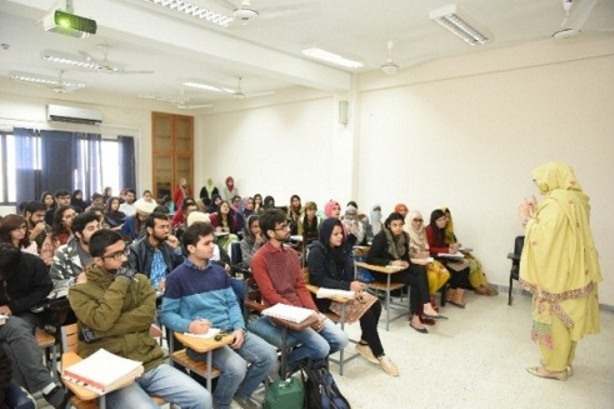Career Development Plan
What is Career?
Career is a primary path for personal growth, a way to define &expand yourself at the same time. It is a source of economic support, emotional strength & a means for self-discovery.
What does Career Choice mean to you?
o Choice is a set of small “Decisions “ that influence ultimate outcome Example
Choose one small habit today that YOU WILL NOT DO today that can ripple in to a positive outcome, could be as small as Choosing not to wear un ironed clothes
o Create and use advantages created through that change of habit.
o Meet and Socialise when dressed well for Networking
o Choose to Say “No” to any activity that inhibits your GOAL Achievement . A “No” today can save years of misery tomorrow
o Best of Brands are worth nothing if your” Investment of Self” is absent
Career Decision Making Process:
a. Self-Assessment(Skills Inventory Test, MBTI) https://tinyurl.com/cdc-personality-test
b. Career Exploration
c. Information analysis through Networking
d. Making a Career Choice
e. Develop a plan of Action
f. Job Campaign
Elements utilised for Career Development:
a. Faculty Mentorship
b. Fellow Networking
c. Alumni talk series
d. Internships
e. Study tours
f. Shadowing Employers
g. Experimenting
h. Coaching through Career Advisors
Career Exploration Process
Ø Self-Assessment: Know yourself, Your Motivation, Value, Skills, Interest & areas that intrigue you.
Ø Interest & Values : Hunt the career that best describe your interest & Values (Its more good to be adaptable)
Ø Job Campaign : Prepare yourself for available opportunities & the challenges of entering the world of work
Career Development Centre-Overview:
The Career Development Centre (CDC) provides programmes and services to students and alumni in exploring and making effective career choices. The services that CDC offers are as follows:
a. Career – Development Seminars & Workshops
b. Career Coaching (One-to-One/Group)
c. Resume and Cover Letter Assistance
d. Interviewing Skills
e. Internship Guidelines
f. Job Search Strategies
g. Letter of Recommendation for Internships
Career Guidance Publications
i. Career Publications
ii. Career orientation Guide Book
iii. Skill sets and Development Activities
iv. Career Development Guide book
v. Internship Guide Book
vi. Resume Guide Book
vii. Training Manual on Resume Writing
viii. Job Search Hand Book
ix. Training Manual on Interviewing Skills
The Truth About Majors And Careers
a. Choosing a major does not limit you to only one career choice.
b. Choosing a career does not limit you to only one major.
c. Graduate work does not have to be in the same area as your undergraduate
degree.
d. It’s okay to change your mind
Necessary Elements for Choosing Majors
In order to formulate a plan for choosing or changing disciplines, a student must go through a comprehensive decision process using the following techniques:
ü Informational Interviewing from Seniors of respective Disciplines
ü Faculty Mentorship of desired Discipline
ü Networking with Alumni using social media and other tools
ü Career Aptitude tests
Strategy Needs to be Developed:
Organising the Information:
a. Set the Goals
b. Know what is important examine the options
c. Assess the risks involved
d. Establish the Implementation Plan
Things to Consider When Choosing A Major
i. Self-assessment
ii. Complete the Choosing a Major Worksheet
iii. Meet with your Freshman Advisor and Associate Advisor to discuss your options and gain advice and guidance.
iv. Schedule an appointment with career counsellor to discuss majors and career interests.
v. Attend academic department open houses.
Techniques for Analysis of Specialisation:
Networking with seniors
a. Faculty Advisors
b. Role of Societies & Clubs. (Extra Curricular)
c. Psychometric Testing at C3A
Three Most Important Gadgets
i. Time
ii. Information
iii. Commitment with yourself
Psychology of Career Choice
i. Assessing abilities
ii. Interests
iii. Values
Abilities-knowing yourself
Abilities are skills,talentsor things you can do.
Major Work Related abilities include:
a. Interpersonal
b. Leadership
c. Numerical
d. Organisational
e. Persuasive
f. Scientific
g. Technical
Interests:
Interest indicates direction of a person’s preferences, i-e Likes/Dislikes
Abilities answers: What I know & what can I do?
Interests answers: Do I like & want to do it?
Values: What people want to get out of job which brings Job satisfaction?
a. Creativity
b. Good Salary
c. High Achievements
d. Independence
e. Job Security
f. Leadership
g. Prestige
h. Work with innovative minds
i. Physical Activity
